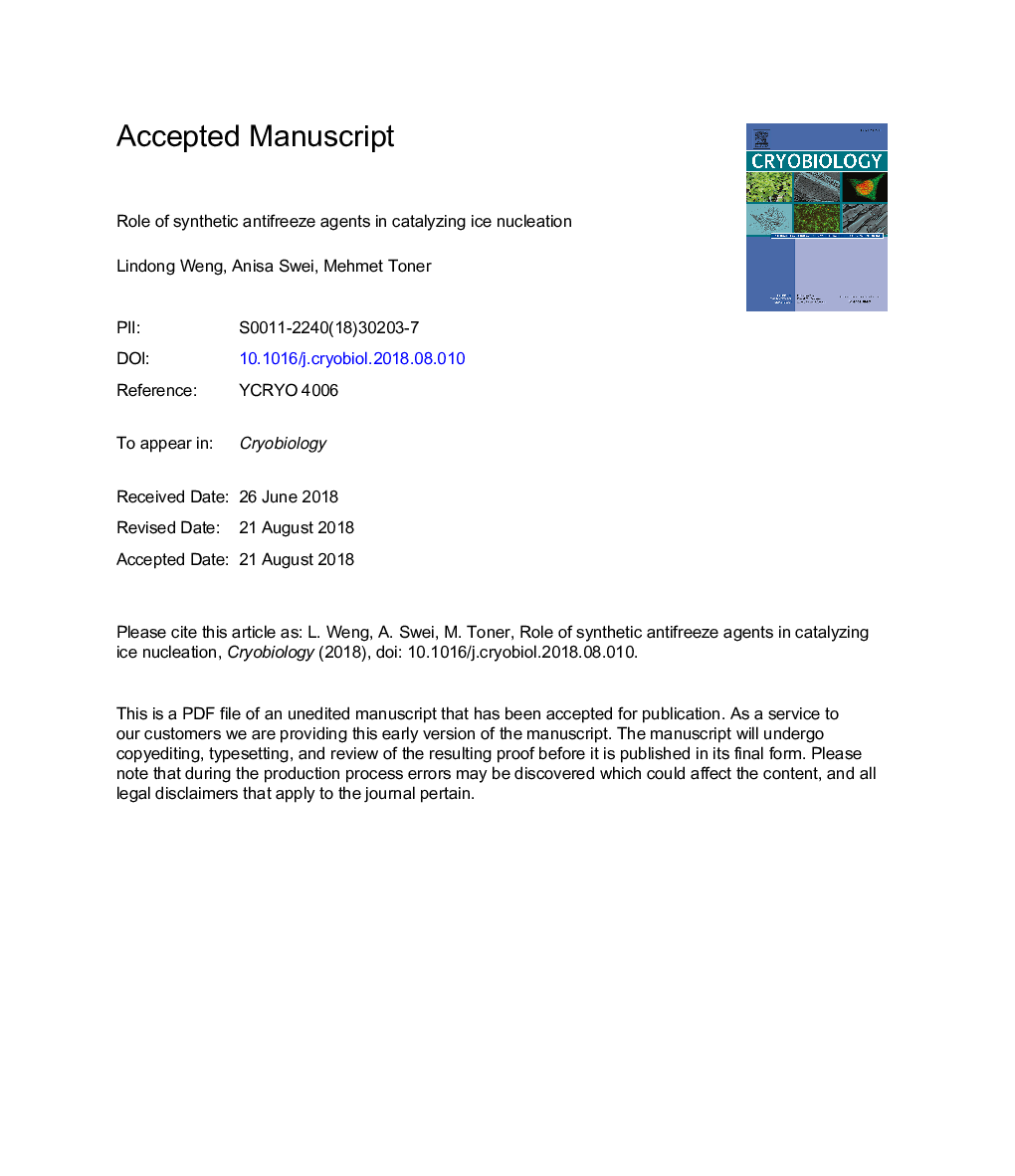| Article ID | Journal | Published Year | Pages | File Type |
|---|---|---|---|---|
| 10157781 | Cryobiology | 2018 | 8 Pages |
Abstract
Nature endows antifreeze (glyco)proteins (AF(G)Ps) with the excellent capability of inhibiting ice crystal growth. Recent years have also witnessed the emergence of many potent AF(G)P mimics such as poly (vinyl alcohol) (PVA). As researchers are revealing the molecular mechanisms of inhibiting ice crystal growth by AF(G)Ps and their synthetic substitutes, there remains no agreement about their effect on ice nucleation. In this study, we report the observation of ice nucleation catalyzed by PVA of different polymerization degrees using a freeze-on-a-chip platform which allows the monitoring of freezing and melting events over hundreds of monodisperse, picoliter-sized aqueous droplets. Aqueous droplets made of 1â¯mg/ml PVA solution exhibit a median freezing temperature of around â36â¯Â°C, two degrees higher than the observed homogeneous nucleation temperature of water. The findings in our study bring useful insights into the different roles of synthetic antifreeze agents in controlling ice formation.
Related Topics
Life Sciences
Agricultural and Biological Sciences
Agricultural and Biological Sciences (General)
Authors
Lindong Weng, Anisa Swei, Mehmet Toner,
